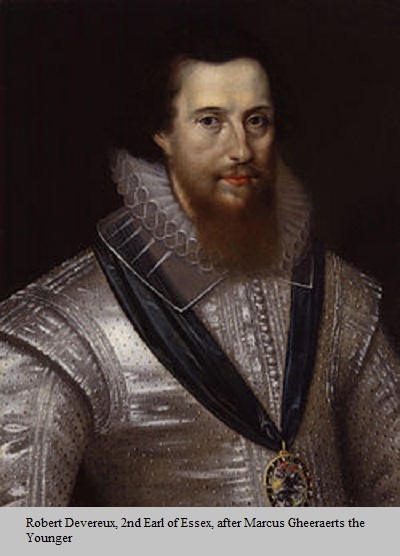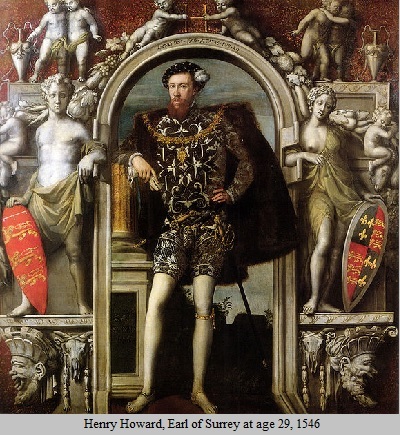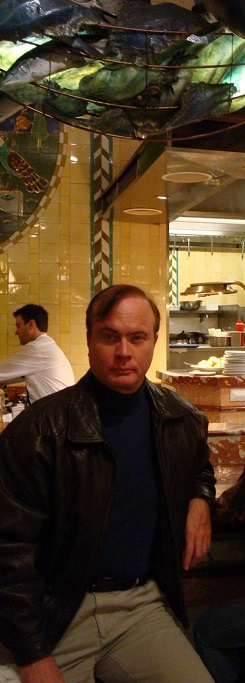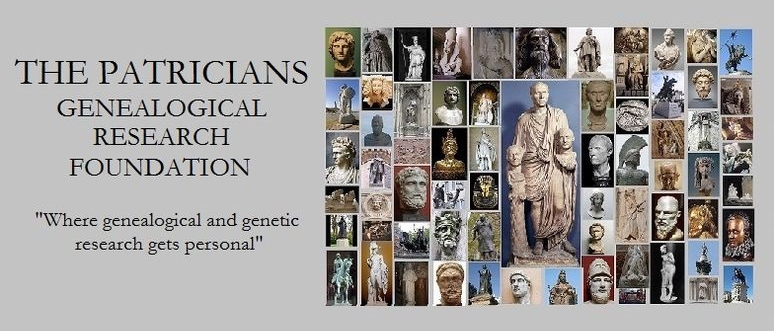


















“vultus tela vibrat”
(His will shakes speares)
–Gabriel Harvey, Elizabethan poet’s comment about Oxford during royal court address in 1578.
Elizabethan dramatist Robert Greene may one day prove to have been a figment of Earl Edward de Vere’s prodigious literary imagination. There is evidence to the effect that Robert Greene was Oxford’s nom de plume for his prodigious literary output from 1580 to 1592. After creating Robert’s demise through a satirical pamphlet, Greene’s Groats-Worth of Wit, he adopted William Shake-speare as his successor nom de plume. The following passage of said pamphlet makes this claim evident:
Yes, trust them not for there is an upstart crow, beautified with our feathers, that with his tiger’s heart wrapped in a player’s hide, supposes he is as well able to bombast out a blank verse as the best of you, and being an absolute Johannes factotum, is in his conceit the only Shake-scene (later Shake-speare) a country.
“Johannes factotum” is Oxford’s coy way of telling posterity that William became his new literary servant after Robert’s death. He may well have been a flesh-and-blood servant of his much in the same way that William Shakespeare later served him. (One also suspects that the profile of the visage cloaked in a shroud as shown in the above woodcut is none other than Oxford’s.) Be that as it may, it’s interesting to observe that Oxford himself takes this occasion to sow the seeds of doubt concerning William Shakespeare’s authorship of the plays and sonnets he penned in his name to remain anonymous during his lifetime.
Robert’s rather plebeian family origins (both candidates as his father were tradesmen) cast grave doubt that he could have matriculated at Cambridge University (Oxford’s alma mater) in the first place, and later authored what at the time was exceptionally advanced literature, both stylistically and thematically.
Anonymous (2011 film) is a biographical drama about the life and times of Edward de Vere, 17th Earl of Oxford. It contends that Oxford wrote the plays and sonnets putatively attributed to William Shakespeare as the author.
The film also presents the plausibility of Queen Elizabeth I as Earl Edward’s mother through her liaison with Thomas Seymour, 1st Baron Seymour of Sudeley, whose sister, Lady Jane Seymour, later became Queen Consort to Henry VIII. Perhaps not curiously, after his birth Elizabeth changed the laws of succession to accommodate him as the illegitimate heir to the throne, though the reason he never did remains somewhat of a mystery. Edward passed away a little more than a year after Elizabeth’s death. The question that begs to be asked, nevertheless, is “What reason would the Virgin Queen have to change the protocol of monarchal succession to accommodate illegitimate heir apparent?”
What’s even more mysterious is the reason Henry Wriothesley, 3rd Earl of Southampton, the proposed issue of the incestuous liaison between Elizabeth and Earl Edward, didn’t ascend to the throne as the illegitimate heir apparent. He would have been King Henry IX Tudor if he had. By the way, neither Elizabeth nor Edward ever suspected their mother-son relationship at the time of the liaison since he was secretly adopted by John de Vere, 16th Earl of Oxford, immediately after his birth. Baron William Cecil (1520 – 1598) supposedly procured adoption arrangements for both Edward and Southampton.
Complicating matters even worse is the theory that Elizabeth I was the mother of Sir Francis Bacon (1561 – 1626), who’s yet another candidate as the actual author (or contributor) of Shakespearian literary works. The theory holds that he was the son of Earl Robert Dudley (1532 – 1588), 1st Earl of Leicester, through his secret liaison with Elizabeth. In fact, as “a male favourite to a virgin queen” he maintained a highly public relationship with her at court, even residing in an apartment next to hers in Richmond Palace. If the theory is proven true someday, then Sir Francis Bacon-Tudor (a.k.a. William Tudor in his poetry) would have been the illegitimate heir apparent to the throne after Edward de Vere-Tudor.
Robert Devereux (1565 – 1601), 2nd Earl of Essex, is thought to have been an issue of the couple, as well. A favorite at Elizabeth’s court like Southampton, Essex was nevertheless found guilty of high treason and beheaded on Tower Green. Elizabeth spared the life of Southampton, his co-conspirator and possible stepbrother, at Oxford’s pleading.
It’s unclear as to who knew what about whom and when insofar as parental/sibling relationships that existed between one another. Elizabeth and Edward knew for certain that Southampton was their son, and certainly at the time of his indictment for high treason. And there’s every indication that Sir Francis Bacon knew Elizabeth was his birth mother. If there’s one certainty, however, outside the main characters involved, only Baron Cecil and his son Earl Robert Cecil (1563 – 1612), 1st Earl of Salisbury, knew the secret(s) with 100% certainty. It would thus be interesting to know the extent to which they wielded that knowledge to their best advantage. Perhaps they had a hand in effectively ending the theoretical Tudor monarchal succession scheme with the death of Elizabeth’s last heir apparent Sir Francis Bacon. That’s not to say the Cecils acted overtly prejudicial in any way, but perhaps they at least kept the secret all too well, both before and after Elizabeth’s death, for the sake of the continuance of the Tudor dynasty.
Baron Thomas Seymour (originally ‘St Maur’) was an agnatic descendant of Hugh Capet. His mother, Margery Wentworth, was an enatic descendant of Joane de Vere (1264 – 1293).
As John de Vere’s legitimate son, Edward was a direct descendant of Aubrey II de Vere, Baron of Oxford (1062 – 1141) 1st Lord High Chamberlain, who was one of the leaders of the First Crusade. His direct descendant, Robert de Vere, 3rd Earl of Oxford, was one of the Baron Sureties of the Magna Carta. Both are direct descendants of Cunobelinus (25 BC – 41 AD), the Welsh King of Britons, who’s the namesake of the Shakes-spearean play Cymbeline.
The Tragedy of Hamlet, Prince of Denmark may well represent a crypto-autobiographical drama about the life and times of Prince Edward Tudor. In my mind, there is a remarkable resemblance between the main characters of the play and the main characters who played crucial roles in Earl Edward’s life. To wit,
-Polonius – William Cecil, 1st Baron Burghley (Edward regularly used the quasi-affectionate epithet ‘Polus’ he coined when referring to his guardian.)
-Laertes – Robert Cecil, 1st Earl of Salisbury (William’s son)
-Queen Gertrude – Elizabeth I Tudor
-Ophelia – Anne Cecil, Countess of Oxford (William Cecil’s daughter, Edward’s wife)
-King Hamlet – Thomas Seymour, 1st Baron Seymour of Sudeley (possible father of Prince Edward)
-Fortinbras – King James VI & I Stuart (father of James VII & II and a kind influence on the Tudor monarchy)
-Rosencrantz and Guildenstern – perhaps represent the cabal of courtiers conspiring to affect or influence the course of the English monarchy
-Claudius – King Edward VI
-Horatio – Sir Francis Bacon, 1st Viscount St Alban (1561 – 1626) MP (possibly Edward’s half-brother and lifelong friend)
If Edward is cryptically telling posterity the true course history of the monarchy during the final stage of the Tudor dynasty, and his involvement therein, then we’ve discovered something remarkably intriguing indeed. Actually, after posting herewith, I came across another important adherent to this thesis.
The word Hamlet, by the way, is non-existent (try Googling it) except in this context, and represents Oxford’s wordplay as a salaciously cured slice of the Caledonian boar (one of the heraldic aspects of the Vere coat of arms – see above image).
The Shakespeare-Oxford Society also supports my personal view of the authorship of Hamlet in a statement to that effect posted on its website as follows:
– The details of Hamlet, one of “Shakespeare’s greatest achievements, are so similar to those of Oxford’s life that the play could be considered autobiographical.”
Walt Whitman (1819 – 1892) expressed his misgivings about William Shakespeare as the legitimate author of the collective literature penned under his name. In 1888 he issued the following comment in a literary magazine article:
“Conceiv’d out of the fullest heat and pulse of European feudalism—personifying in unparalleled ways the medieval aristocracy, its towering spirit of ruthless and gigantic caste, with its own peculiar air and arrogance (no mere imitation)—only one of the “wolfish earls” so plenteous in the plays themselves, or some born descendant and knower, might seem to be the true author of those amazing works—works in some respects greater than anything else in recorded literature.”
The “wolfish earl” he alluded to is none other than Earl Edward de Vere.
Established in 1353, Oxford’s Men was one of several acting companies Earls of Oxford patronized through the end of the 16th century. The troupe regularly entertained English monarchs through the reign of King James II Stuart. It’s known they performed several of Edward de Vere’s plays penned under his name.
Oxford’s father, John de Vere, 15th Earl of Oxford, commissioned John Bale to write six plays. In sum, the works represent the marked transition from medieval morality drama to English Renaissance verse drama.
Lady Frances de Vere, John’s daughter, married Henry Howard, Earl of Surrey (1517 – 1547). Along with Sir Thomas Wyatt (1503 – 1542), Surrey wrote the first English sonnets. Shake-speare also employed verse techniques in the plays and sonnets he later wrote. Together, Surrey and Wyatt are considered the Fathers of English Renaissance Literature. Henry was the great-grandson of Duke John Howard, KG (1421 – 1485) Earl Marshal, Lord Admiral.
Sir Henry Carey, 1st Baron Hunsdon (1525 – 1596), was the patron of the Lord Chamberlain’s Men. The theatrical company performed William Shake-speare’s plays at the Old Globe Theatre. He was the illegitimate son of King Henry VIII and Mary Boleyn, Anne Boleyn‘s sister.
The reason Oxford chose William Shakespeare, an illiterate actor, as a playwright substitute for him is fairly understandable. The Cecils, his clandestine guardians, acted as regents over the realm during the last years of Elizabeth’s reign when she was in failing health. They were extremely puritanical and regularly banned literature they considered as heretical in any way, shape, or form. Moreover, nobles weren’t allowed to engage in any activity for the enjoyment of commoners, so Edward had no other choice but to choose one to represent him as the famous dramatist of his day (I think that he also rightly perceived the propaganda value in communicating with commoners in dramatic media, such as it was on the medieval stage).
His Italian plays, such as Romeo and Juliet, portray his passion for the country after having spent several years there in his youth and early adulthood. As a result, he was steeped in Italian romantic culture like no other Englishman of his time.
Despite whatever controversy swirls around authorship, the literary merit of “Shakespearean” literature remains unassailable in terms of post-Homeric dramatic representation of the visceral human condition. This is one of the primary themes of Yale University professor Harold Bloom‘s Shakespeare: The Invention of the Human. For neophytes and scholars alike, this is probably one of the finest books written about each of the Shakespearean plays. If you’re a neophyte, you’ll gain tremendous insight by reading Bloom’s scholarly commentary about a play before actually reading or viewing it staged. If you’re a Shakespearean scholar, you’ll find it a handy reference, as most of you already know.
He’s ranked ahead of William Shakespeare on Hart’s Most Influential People in History:
31. Edward de VERE (17th Earl) of OXFORD (Hedingham Castle 12/4/1550 – 24/6/1604 Hackney, Midx.) ; (VEER); aka Lord Bulbeck (Bolebec), Sanford and Badlesmere.
33. William `the Bard’ SHAKESPEARE (Stratford 1564 – 1616 Stratford); greatest Author in history; (Michael Hart shows, instead, Edward de Vere, q.v., as the great writer).
Oxford was an agnatic descendant of Aubrey II de Vere, Baron of Oxford (1062 – 1141) Chamberlain (or possibly Henry VIII Tudor (1491 – 1547) King of England and Ireland ).
Related ancestral blog articles
European Royalty, Peerage & Nobility
152 Related Poets, Authors, Journalists, Playwrights and Publishers
Edward de Vere “Shake-speare”, 17th Earl of Oxford
Birth 12 Apr 1550 in Castle Hedingham, Essex, England
Death 24 Jun 1604 in Hackney, Middlesex, England
Ancestry.com citation/Lineages
3rd cousin 11x removed TUDOR-BOLEYN-HOWARD-WOOD-COLLINS (alt. pedigree)
5th cousin 12x removed HOWARD-WOOD-COLLINS
5th cousin 15x removed TRUSSELL-DUNN-HASTINGS-HERON-COLLINGWOOD-COLLINS
7th cousin 12x removed FITZALAN-MOWBRAY-HOWARD-WOOD-COLLINS
6th cousin 14x removed COURTENAY-BOHUN-FITZALAN-MOWBRAY-HOWARD-WOOD-COLLINS
9th cousin 15x removed COURTNAY-BOHUN-PLANTAGENET-MOWBRAY-GREY-OGLE-HERON-COLLINGWOOD-COLLINS
father-in-law of 2nd cousin 12x removed STANLEY-HOWARD-WOOD-COLLINS
2nd great-grandnephew of husband of 1st cousin 16x removed HOWARD-WOOD-COLLINS
nephew of wife of 12th great-granduncle HOWARD-WOOD-COLLINS
nephew of wife of 1st cousin 13x removed HOWARD-WOOD-COLLINS
10th cousin 13x removed COURTENAY-BOHUN-PLANTAGENET-HOWARD-WOOD-COLLINS
8th cousin 17x removed WARREN-HOLLAND-SIMMONS-COLLINS
8th cousin 19x removed WARREN-BARLETT-SPRAGUE-TRIPP-OUTWATER-COLLINS
husband of 1st cousin 14x removed CECIL-COOKE-BARLETT-SPRAGUE-TRIPP-OUTWATER-COLLINS
husband of 11th cousin 13x removed CECIL-COOKE-SAUNDERS-CAREW-FIENNES-HOLLAND-SIMMONS-COLLINS
husband of 9th cousin 16x removed VALOIS-BOURGOGNE-CAPET-D’EVREUX-ROHAN-LANDRY-BOURG-CYR-BRULE
SOURCES
Shakespeare – Oxford Society
Anonymous SHAKE-SPEARE
Shake-speare: Edward de Vere, 17th Earl of Oxford
Shakespeare’s Rosicrucian Revelations in the Dedication to the Sonnets
Hank’s 100 Reasons Why Oxford was “Shakespeare” — The List To Date
Prince Tudor Theory Wiki
Oxfordian Theory Wiki
Oxford’s Men Wiki
Shakespeare Identified
de Vere Shakespeare
The Puzzling Life of Edward de Vere
Political Allegory in Venus and Adonis
The Shakespearean Authorship Trust
DNA Testing
List of Shake-speare screen adaptations
BBC Television Shakespeare Series Wiki
Did Elizabeth I have children?
Sir Francis Bacon Royal Parentage
Sir Francis Bacon is William Tudor
Shakespeare Identified press release
Pedigree de Vere
YouTube videos
The Real Edward de Vere
1-6 Edward de Vere, Lord Oxford, was ‘William Shakespeare’
“In Praise of a Contented Mind” by Edward De Vere (poetry reading)
Shakespeare vs Edward de Vere
‘Anonymous’ – Prof Carol Rutter & Prof Stanley Wells discuss the Shakespeare authorship question
‘Mind Thoughts’ by Edward de Vere
Michael Dunn as Sherlock Holmes solves the Shakespeare Mystery
Edward de Vere – Love Thy Choice (sonnet)
Anonymous Full Movie HD Online
De Vere
BBC’s The Complete Works of William Shakespeare
BIBLIOGRAPHY
Bloom, HaroldShakespeare: The Invention of the Human
Oxford: Son of Queen Elizabeth I
Shakespeare by Another Name: The Life of Edward de Vere, Earl of Oxford, the Man Who WasShakespeare
Burghley: William Cecil at the Court of Elizabeth I
Shakespeare’s Lost Kingdom: The True History of Shakespeare and Elizabeth
The Essays
The New Atlantis
Francis Bacon: The Major Works
The Patricians, A Genealogical Study – Ebook Editions US$5.95


Steven Wood Collins (1952 – still living) Antiquarian, Genealogist, Novelist


93 replies on “Edward VII de Vere, 17th Earl of Oxford, Lord Great Chamberlain (1550 – 1604) “Shake-speare””
[…] Edward VII de Vere, Earl of Oxford (1550 – 1604) “Shakespeare” 3-11 […]
LikeLike
[…] Edward VII de Vere, Earl of Oxford (1550 – 1604) “Shakespeare” 3-11 […]
LikeLike
[…] Edward VII de Vere, Earl of Oxford (1550 – 1604) “Shakespeare” 3-11 […]
LikeLike
[…] Edward VII de Vere, Earl of Oxford (1550 – 1604) “Shakespeare” 3-11 […]
LikeLike
[…] Edward VII de Vere, Earl of Oxford (1550 – 1604) “Shakespeare” 3-11 […]
LikeLike
[…] Edward VII de Vere, Earl of Oxford (1550 – 1604) “Shakespeare” 3-11 […]
LikeLike
[…] Edward VII de Vere, Earl of Oxford (1550 – 1604) “Shakespeare” 3-11 […]
LikeLike
[…] Edward VII de Vere, Earl of Oxford (1550 – 1604) “Shakespeare” 3-11 […]
LikeLike
[…] Edward VII de Vere, Earl of Oxford (1550 – 1604) “Shakespeare” 3-11 […]
LikeLike
[…] Edward VII de Vere, Earl of Oxford (1550 – 1604) “Shakespeare” 3-11 […]
LikeLike
[…] Edward VII de Vere, Earl of Oxford (1550 – 1604) “Shakespeare” 3-11 […]
LikeLike
[…] Edward VII de Vere, Earl of Oxford (1550 – 1604) “Shakespeare” 3-11 […]
LikeLike
[…] Edward VII de Vere, Earl of Oxford (1550 – 1604) “Shakespeare” 3-11 […]
LikeLike
[…] Edward VII de Vere, Earl of Oxford (1550 – 1604) “Shakespeare” 3-11 […]
LikeLike
[…] Edward VII de Vere, Earl of Oxford (1550 – 1604) “Shakespeare” 3-11 […]
LikeLike
[…] Edward VII de Vere, Earl of Oxford (1550 – 1604) “Shakespeare” 3-11 […]
LikeLike
[…] Edward VII de Vere, Earl of Oxford (1550 – 1604) “Shakespeare” 3-11 […]
LikeLike
[…] Edward VII de Vere, Earl of Oxford (1550 – 1604) “Shakespeare” 3-11 […]
LikeLike
[…] Edward VII de Vere, Earl of Oxford (1550 – 1604) “Shakespeare” 3-11 […]
LikeLike
[…] Edward VII de Vere, Earl of Oxford (1550 – 1604) “Shakespeare” 3-11 […]
LikeLike
[…] Edward VII de Vere, Earl of Oxford (1550 – 1604) “Shakespeare” 3-11 […]
LikeLike
[…] Edward VII de Vere, Earl of Oxford (1550 – 1604) “Shakespeare” 3-11 […]
LikeLike
[…] Edward VII de Vere, Earl of Oxford (1550 – 1604) “Shakespeare” 3-11 […]
LikeLike
[…] Edward VII de Vere, Earl of Oxford (1550 – 1604) “Shakespeare” 3-11 […]
LikeLike
[…] Edward VII de Vere, Earl of Oxford (1550 – 1604) “Shakespeare” 3-11 […]
LikeLike
[…] Edward VII de Vere, Earl of Oxford (1550 – 1604) “Shakespeare” 3-11 […]
LikeLike
[…] Edward VII de Vere, Earl of Oxford (1550 – 1604) “Shakespeare” 3-11 […]
LikeLike
[…] Edward VII de Vere, Earl of Oxford (1550 – 1604) “Shakespeare” 3-11 […]
LikeLike
[…] Edward VII de Vere, Earl of Oxford (1550 – 1604) “Shakespeare” 3-11 […]
LikeLike
[…] Edward VII de Vere, Earl of Oxford (1550 – 1604) “Shakespeare” 3-11 […]
LikeLike
[…] Edward VII de Vere, Earl of Oxford (1550 – 1604) “Shakespeare” 3-11 […]
LikeLike
[…] Edward VII de Vere, Earl of Oxford (1550 – 1604) “Shakespeare” 3-11 […]
LikeLike
[…] Edward VII de Vere, Earl of Oxford (1550 – 1604) “Shakespeare” 3-11 […]
LikeLike
[…] Edward VII de Vere, Earl of Oxford (1550 – 1604) “Shakespeare” 3-11 […]
LikeLike
[…] Edward VII de Vere, Earl of Oxford (1550 – 1604) “Shakespeare” 3-11 […]
LikeLike
[…] Edward VII de Vere, Earl of Oxford (1550 – 1604) “Shakespeare” 3-11 […]
LikeLike
[…] Edward VII de Vere, Earl of Oxford (1550 – 1604) “Shakespeare” 3-11 […]
LikeLike
[…] Edward VII de Vere, Earl of Oxford (1550 – 1604) “Shakespeare” 3-11 […]
LikeLike
[…] Edward VII de Vere, Earl of Oxford (1550 – 1604) “Shakespeare” 3-11 […]
LikeLike
[…] Edward VII de Vere, Earl of Oxford (1550 – 1604) “Shakespeare” 3-11 […]
LikeLike
[…] Edward VII de Vere, Earl of Oxford (1550 – 1604) “Shakespeare” 3-11 […]
LikeLike
[…] Edward VII de Vere, Earl of Oxford (1550 – 1604) “Shakespeare” 3-11 […]
LikeLike
[…] Edward VII de Vere, Earl of Oxford (1550 – 1604) “Shakespeare” 3-11 […]
LikeLike
[…] Edward VII de Vere, Earl of Oxford (1550 – 1604) “Shakespeare” 3-11 […]
LikeLike
[…] Edward VII de Vere, Earl of Oxford (1550 – 1604) “Shakespeare” 3-11 […]
LikeLike
[…] Edward VII de Vere, Earl of Oxford (1550 – 1604) “Shakespeare” 3-11 […]
LikeLike
[…] Edward VII de Vere, Earl of Oxford (1550 – 1604) “Shakespeare” 3-11 […]
LikeLike
[…] Edward VII de Vere, Earl of Oxford (1550 – 1604) “Shakespeare” 3-11 […]
LikeLike
[…] Edward VII de Vere, Earl of Oxford (1550 – 1604) “Shakespeare” 3-11 […]
LikeLike
[…] Edward VII de Vere, Earl of Oxford (1550 – 1604) “Shakespeare” 3-11 […]
LikeLike
[…] Edward VII de Vere, Earl of Oxford (1550 – 1604) “Shakespeare” 3-11 […]
LikeLike
[…] Edward VII de Vere, Earl of Oxford (1550 – 1604) “Shakespeare” 3-11 […]
LikeLike
[…] Edward VII de Vere, Earl of Oxford (1550 – 1604) “Shakespeare” 3-11 […]
LikeLike
[…] Edward VII de Vere, Earl of Oxford (1550 – 1604) “Shakespeare” 3-11 […]
LikeLike
[…] Edward VII de Vere, Earl of Oxford (1550 – 1604) “Shakespeare” 3-11 […]
LikeLike
[…] Edward VII de Vere, Earl of Oxford (1550 – 1604) “Shakespeare” 3-11 […]
LikeLike
[…] Edward VII de Vere, Earl of Oxford (1550 – 1604) “Shakespeare” 3-11 […]
LikeLike
[…] Edward VII de Vere, Earl of Oxford (1550 – 1604) “Shakespeare” 3-11 […]
LikeLike
[…] Edward VII de Vere, Earl of Oxford (1550 – 1604) “Shakespeare” 3-11 […]
LikeLike
[…] Edward VII de Vere, Earl of Oxford (1550 – 1604) “Shakespeare” 3-11 […]
LikeLike
[…] Edward VII de Vere, Earl of Oxford (1550 – 1604) “Shakespeare” 3-11 […]
LikeLike
[…] Edward VII de Vere, Earl of Oxford (1550 – 1604) “Shakespeare” 3-11 […]
LikeLike
[…] Edward VII de Vere, Earl of Oxford (1550 – 1604) “Shakespeare” 3-11 […]
LikeLike
[…] Edward VII de Vere, Earl of Oxford (1550 – 1604) “Shakespeare” 3-11 […]
LikeLike
[…] Edward VII de Vere, Earl of Oxford (1550 – 1604) “Shakespeare” 3-11 […]
LikeLike
[…] Edward VII de Vere, Earl of Oxford (1550 – 1604) “Shakespeare” 3-11 […]
LikeLike
[…] Edward VII de Vere, Earl of Oxford (1550 – 1604) “Shakespeare” 3-11 […]
LikeLike
[…] Edward VII de Vere, Earl of Oxford (1550 – 1604) “Shakespeare” 3-11 […]
LikeLike
[…] Edward VII de Vere, Earl of Oxford (1550 – 1604) “Shakespeare” 3-11 […]
LikeLike
[…] Edward VII de Vere, Earl of Oxford (1550 – 1604) “Shakespeare” 3-11 […]
LikeLike
[…] Edward VII de Vere, Earl of Oxford (1550 – 1604) “Shakespeare” 3-11 […]
LikeLike
[…] Edward VII de Vere, Earl of Oxford (1550 – 1604) “Shakespeare” 3-11 […]
LikeLike
[…] Edward VII de Vere, Earl of Oxford (1550 – 1604) “Shakespeare” 3-11 […]
LikeLike
[…] Edward VII de Vere, Earl of Oxford (1550 – 1604) “Shakespeare” 3-11 […]
LikeLike
[…] Edward VII de Vere, Earl of Oxford (1550 – 1604) “Shakespeare” 3-11 […]
LikeLike
[…] Edward VII de Vere, Earl of Oxford (1550 – 1604) “Shakespeare” 3-11 […]
LikeLike
[…] Edward VII de Vere, Earl of Oxford (1550 – 1604) “Shakespeare” 3-11 […]
LikeLike
[…] Edward VII de Vere, Earl of Oxford (1550 – 1604) “Shakespeare” 3-11 […]
LikeLike
[…] Edward VII de Vere, Earl of Oxford (1550 – 1604) “Shakespeare” 3-11 […]
LikeLike
[…] Edward VII de Vere, Earl of Oxford (1550 – 1604) “Shakespeare” 3-11 […]
LikeLike
[…] Edward VII de Vere, Earl of Oxford (1550 – 1604) “Shakespeare” 3-11 […]
LikeLike
[…] Edward VII de Vere, Earl of Oxford (1550 – 1604) “Shakespeare” 3-11 […]
LikeLike
[…] Edward VII de Vere, Earl of Oxford (1550 – 1604) “Shakespeare” […]
LikeLike
[…] Edward VII de Vere, Earl of Oxford (1550 – 1604) “Shakespeare” […]
LikeLike
[…] Edward VII de Vere, Earl of Oxford (1550 – 1604) “Shakespeare” 3-11 […]
LikeLike
[…] Anne Cecil, Countess of Oxford (1556 – 1588) Tombwife of Edward VII de Vere, Earl of Oxford (1550 – 1604) “Shake-speare” […]
LikeLike
[…] Edward VII de Vere, 17th Earl of Oxford, Lord Great Chamberlain (1550 – 1604) “Shake-spe… […]
LikeLike
[…] #31 Earl Edward de Vere (“Shake-speare”) […]
LikeLike
[…] #31 Earl Edward de Vere (“Shake-speare”) […]
LikeLike
[…] #31 Earl Edward de Vere (“Shake-speare”) […]
LikeLike
[…] #31 Earl Edward de Vere (“Shake-speare”) […]
LikeLike
[…] Edward VII de Vere, 17th Earl of Oxford, Lord Great Chamberlain (1550 – 1604) “Shake-spe… […]
LikeLike
[…] Edward VII de Vere, 17th Earl of Oxford, Lord Great Chamberlain (1550 – 1604) “Shake-spe… […]
LikeLike